PC Blakelock murder trial: Why did the latest case fail?
- Published
Another trial has ended with no-one convicted over the brutal murder of PC Keith Blakelock in the Broadwater Farm riots in north London almost 30 years ago.
So why did the latest attempt fail?
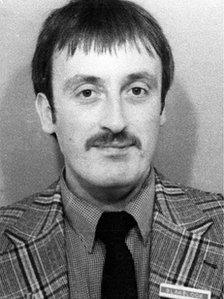
PC Keith Blakelock was murdered as he tried to protect firefighters
The family of PC Keith Blakelock have been trying to seek justice which has eluded them since 6 October 1985 when he was so savagely cut down in Tottenham.
Beaten back by young men wielding an array of weapons, PC Blakelock fell and was attacked and sustained multiple injuries which proved fatal. He was stabbed 43 times.
The riots were an unmitigated policing disaster. They failed to act on intelligence, conduct inquiries within the rules, deploy officers appropriately, protect their own officers from serious harm and to secure the crime scene.
They were also an unmitigated catastrophe for the residents of Tottenham. It led to the stigmatising of more than 300 families as their young men were sent to custody or acquired criminal records for their part in the riots.
It is this that has meant to this day the community remains traumatised and is still desperately seeking to overcome the mark that hangs over this part of north London.
'Inconsistent' witness
The trial has been a long and arduous one for all involved. In the absence of any forensic evidence against 45-year-old Nicky Jacobs, a successful prosecution was always going to be a challenge.
Firstly it was not broadly fresh evidence. Two anonymous witnesses using the pseudonyms of "John Brown" and "Rhodes Levin" had previously not been seen as credible witnesses to mount a successful prosecution.
Both men were adults when they themselves were involved in the attack on PC Blakelock, while Mr Jacobs was a juvenile.
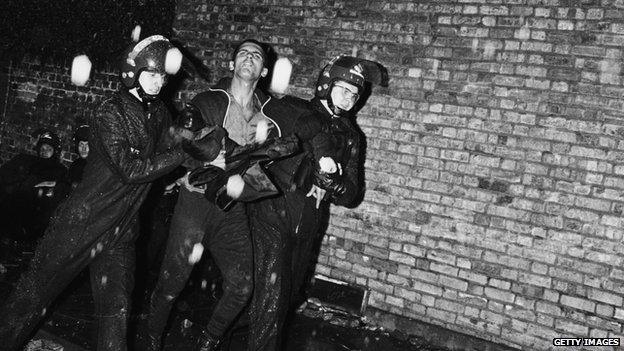
The police carried out mass arrests after the riots
During the second investigation into the murder that concluded in 1994, these men were offered immunity from prosecution on the grounds they admitted kicking PC Blakelock whereas they claimed Mr Jacobs had stabbed him.
A third witness, a cousin of Mr Brown and known as "Q", was identified in 2009. He came to the Old Bailey and spun a yarn of what he saw which at times was fantastical.
He suggested he had seen two Rolls Royces on the estate the day before the riots - one silver and one gold - where black men had passed what looked like sawn-off shotguns from one Rolls to the other.
But he placed the murder scene on another part of the estate. His testimony sometimes mirrored that of his relative, although bizarrely he denied Mr Brown was his cousin.
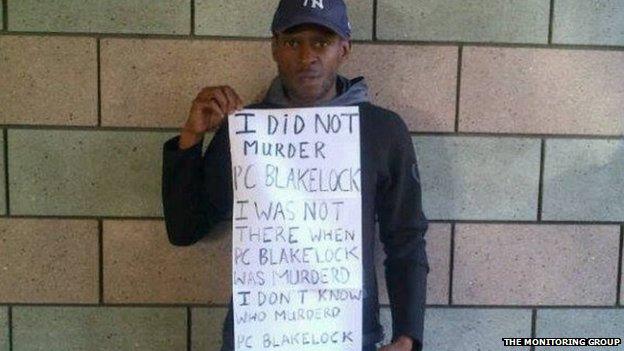
The prosecution said Nicholas Jacobs had stabbed PC Blakelock as he was on the ground
Q was often incoherent and had serious lapses of memory. He has a long history of alcohol and drug abuse, which at times, listening to his evidence seemed to have impaired his rational bearing. He was a man who sounded like someone 20 years older or one who is seriously ill.
His certainty on one fact alone, that Mr Jacobs was guilty, defied the uncertainty and inconsistency on a whole raft of other facts.
He was also evidentially inconsistent with other key witnesses to the crime, in particular the police officers.
A very inconsistent fresh witness he turned out to be.
The fourth strand of evidence was a poem written by Mr Jacobs in 1988 while he was serving a sentence for affray arising out of the riots.
In it he appeared to admit his involvement in the crime but perhaps this was too ambiguous. It could have been the rantings of a mixed-up deluded young man who had clearly chosen the wrong path in life. An attempt at boasting, making himself bigger than he was perhaps?
The final evidence presented by the prosecution was a brief exchange of words with an arresting officer when Mr Jacobs was suspected of being involved in a burglary in 2000.
He was alleged to have said "you don't want to mess with me I did Keith Blakelock". Nevertheless, the officer failed to report this conversation to a senior officer at the time and only provided a statement 12 years after the event. Was this too inconclusive for the jury perhaps?
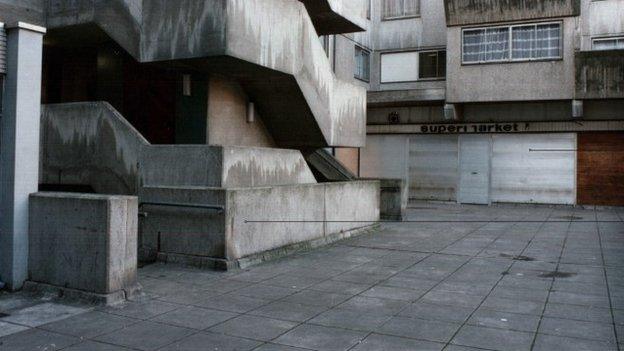
He was killed during a riot on the Broadwater Farm Estate
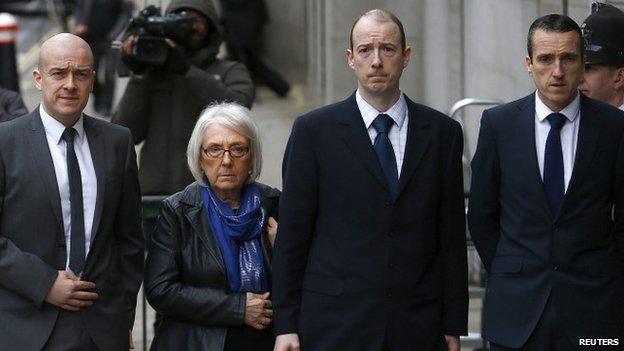
His family have had to go through numerous trials and hearings but as yet no-one is in jail for his murder
Listening to the evidence there was always a strong possibility that there would be some reasonable doubt with all or some of these evidential strands.
I suspect little or any of this will assuage or bring comfort to PC Blakelock's widow Elizabeth or his three sons Mark, Kevin and Lee.
The harsh reality is people will only be convicted on sound evidence and this jury - which often asked penetrating questions whilst they were hearing the evidence - was not convinced it was.
We must never forget this terrible deed, but we must also never forget the circumstances which led to it - a serious injury to mother Cherry Groce in Brixton which left her paralysed and then the death of Cynthia Jarrett when police, against their own rules, entered her home without warning.
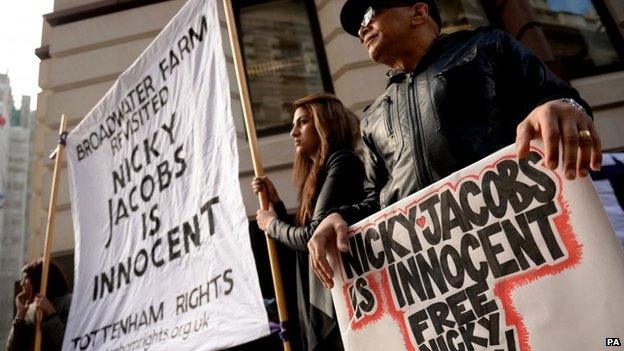
Protests have been held outside the court supporting the defendant
The Met Police only "privately" apologised for the former serious injury in March this year. It has never apologised to the Jarrett family.
I was there that fateful night of the riots as I helped pull my future brother-in-law out from the midst of the conflagration.
There have surely been great strides made since then in building relations between police and community.
But the local borough commander in Haringey, Ch Supt Victor Olisa, told me "more still needs to be done to engage and maintain a constructive dialogue with the local community".
The media also has a responsibility to help remove the stigma from a community that current residents say no longer deserves it.
As for those that did murder PC Keith Blakelock, they must live with their conscience and before they meet their maker, they will have to reckon with what was on any scale an unjustified act of evil.
- Published31 March 2014
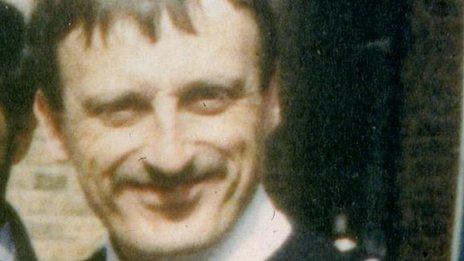
- Published25 March 2014

- Published17 March 2014

- Published12 March 2014

- Published4 March 2014
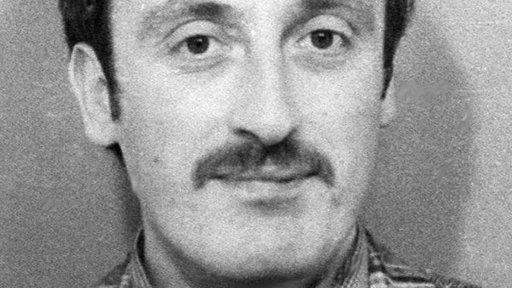
- Published3 March 2014
